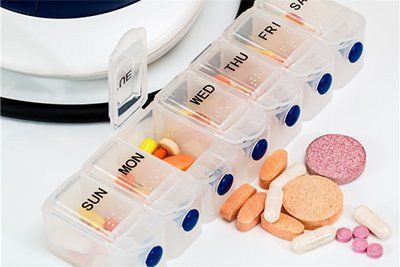Medicare Supplement Plans
The Retirement Cafe can help you find a Medicare Supplement Plan that is tailored to your budget and healthcare needs. How does a Medicare Supplement work for you? How much does it cost? Can I travel with it? These are just a few of the topics that we can further educate and discuss with a simple phone call. Call to speak with a trusted advisor today!
Medicare Part B
Medicare Part B covers a portion of services such as doctor’s office visits, lab work, x-rays, and surgeries. It also covers some preventive services like cancer screenings, colonoscopies, mammagrams and flu shots just to name a few. Part B also covers medically necessary durable medical equipment such as wheelchairs and crutches. Most people pay a premium for Part B.
Medicare Part D Prescription Drug Plans
Original Medicare does not include coverage for prescription drugs dispensed by a pharmacy. Although Medicare Part D coverage is optional, it can be valuable if you take medications. You will pay a late-enrollment penalty if you do no’t sign up for Medicare Part D coverage when you are first eligible. Let us explain your options and help you avoid a late enrollment penalty.
Before choosing a plan, we want to be sure you know the difference between your many options, Particularly how Medicare Supplements and Medicare Advantage Plans differ. Many people sign up for Advantage Plans thinking they are Supplements. They are not.
Medicare Choices

Medicare Supplement Insurance Plans
A Medicare Supplement Insurance Plan is used with original Medicare. Any caregiver that accepts Medicare will take a Supplement because they only need to bill Medicare. Medicare pays their part (generally 80% of Medicare-covered benefits) and sends the remainder of the bill to the Supplement, which pays their part (generally 20%). It is important to note that Supplements do NOT include Prescription Drug Coverage (Part D, PDP), and for those that do not get a PDP when first eligible, there will be a penalty when they do get a PDP. (There are exceptions to this) A Medicare Supplement does not change year to year (although the cost does generally go up, the coverage does not change).

Medicare Advantage Plans
Medicare Advantage Plans, sometimes called "Part C" or "MA Plans," are an “all in one” alternative to Original Medicare. Private companies approved by Medicare offer them. If you join a Medicare Advantage Plan, you still have Medicare. These "bundled" plans include Medicare Part A (Hospital Insurance) and Medicare Part B (Medical Insurance), and usually Medicare drug coverage (Part D).

Medicare Prescription Drug Plan (Part D)
These plans (sometimes called "PDPs") add drug coverage to Original Medicare, some Medicare Cost Plans, some Medicare Private Fee-for-Service (PFFS) Plans, and Medicare Medical Savings Account (MSA) Plans. Each Medicare Prescription Drug Plan has its list of covered drugs (called a formulary). Many Medicare drug plans place drugs into different "tiers" on their formularies. Drugs in each tier have a different cost. A drug in a lower tier will generally cost you less than a drug in a higher tier. If your drug is on a higher tier and your prescriber thinks you need that drug instead of a similar drug on a lower tier, you or your prescriber can ask your plan for an exception to get a lower copayment.



